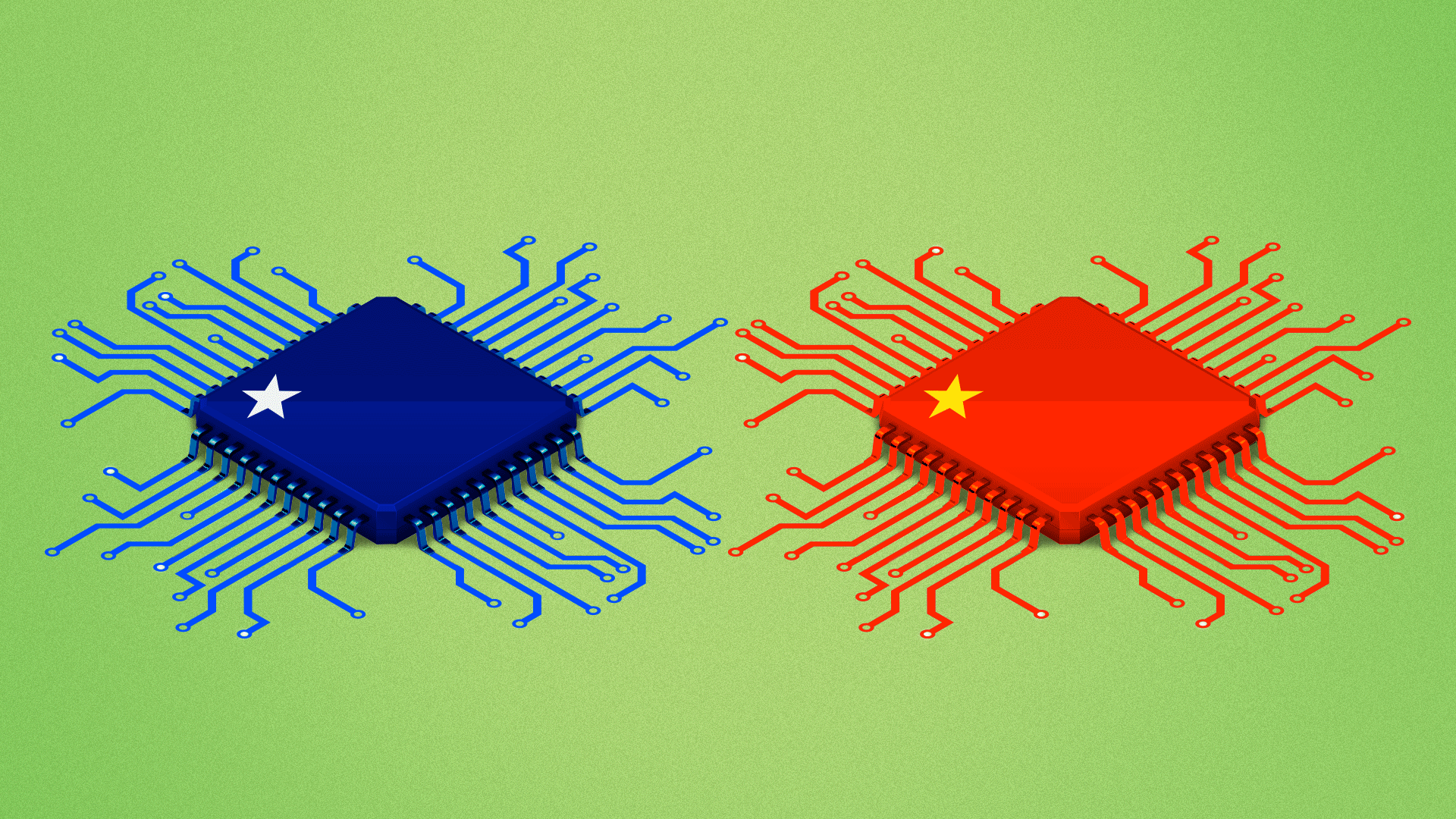Zachary Basu

U.S. intelligence officials responsible for protecting advanced technologies have narrowed their focus to five key sectors: artificial intelligence, quantum computing, biotechnology, semiconductors and autonomous systems.
Why it matters: China and Russia are employing a variety of legal and illegal methods to undermine and overtake U.S. dominance in these critical industries, officials warned in a new paper. Their success will determine "whether America remains the world’s leading superpower or is eclipsed by strategic competitors."
Driving the news: The National Counterintelligence and Security Center has launched a campaign to warn U.S. companies and researchers about foreign intelligence threats to these sectors, which the Chinese and Russian governments are targeting through international collaborations, talent recruitment and espionage:
AI: Officials warn that current trends suggest China has "the might, talent, and ambition" to surpass the U.S. in AI in the next decade, which could significantly exacerbate threats posed by cyberattacks and disinformation campaigns.
Quantum: Some foreign countries are spending substantially more on quantum development than the U.S., which puts them in a better position to recruit American talent. Whoever wins the race for quantum dominance could compromise other countries' economic and national security communications, the paper claims.
Biotech: Competition in the global bioeconomy has intensified over the past decades, as foreign countries have stolen technology and intellectual property from the U.S. As one example, the paper highlights breakthrough technologies in genomics, which could be exploited for "surveillance and societal repression."
Semiconductors: The global nature of the semiconductor supply chain — which is currently experiencing disruptions — creates economic chokepoints that can be exploited by adversaries. The U.S. is extremely dependent on one company in Taiwan for key chip components, for example.
Autonomous systems: The expansion of these systems for both military and civilian purposes presents a "growing attack surface for malicious cyber actors," the paper warns.
The big picture: Acting NCSC director Michael Orlando told reporters that he was not advocating for "decoupling" the U.S. and Chinese economies, instead stressing: "If you are going to do business and collaborate, be smart about it."
No comments:
Post a Comment